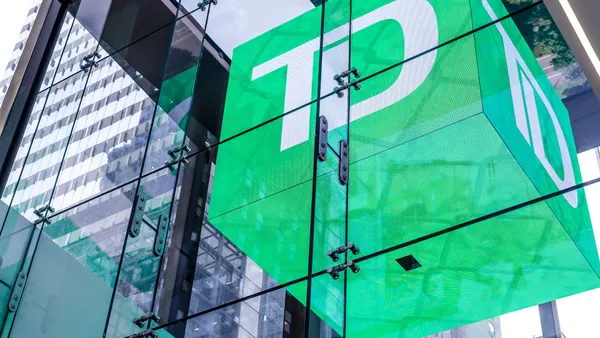More than a dozen Wells Fargo employees were fired last month for allegedly faking productivity, according to disclosures filed with the Financial Industry Regulatory Authority seen by Bloomberg and the Financial Times.
Affected employees were part of Wells’ wealth and investment management unit, and they were “discharged after review of allegations involving simulation of keyboard activity creating impression of active work,” according to FINRA disclosures.
At least one fired employee had been with the bank for more than seven years, the Financial Times reported, citing the disclosures.
So-called “mouse jigglers” — hardware or software that keeps computers from going into sleep mode by simulating user activity — are available for between $4 and $40 on Amazon, with some racking up thousands of user reviews. Their popularity took off with the rise of remote work spurred by the COVID-19 pandemic.
A Wells spokesperson did not provide further detail on what led to the discovery and employees’ firing but told Banking Dive that the San Francisco-based bank “holds employees to the highest standards and does not tolerate unethical behavior.”
Users trade tips on social media sites such as Reddit on how to keep their employers’ IT departments from discovering their mouse jigglers. They also trade information on employers they suspect are using technology that can detectmouse jigglers. “If your company treats you like a child, this thing is for you,” one user touts in an Amazon review.
Big banks have come down hard on employees in the late-pandemic and post-pandemic eras. Goldman Sachs and JPMorgan Chase have each reportedly tracked badge swipes, with the latter detailing how much time employees spend on various tasks, such as Zoom calls and responding to email.
Citi, meanwhile, reportedly told its managers to discuss consequences with employees who regularly flout the bank’s requirement that hybrid workers come to the office three days a week. It also allegedly instructed managers to consider compliance with company rules when designing pay packages. The guidance, incidentally, came months before the bank launched a reorganization that, as of March, has cut 7,000 jobs.
Barclays came under fire in 2020 for allegedly tracking employee productivity, sending prods to employees such as, “Not enough time in the Zone yesterday.”
The New York Times in 2022 detailed how the digital tracking of productivity by employers was growing.











